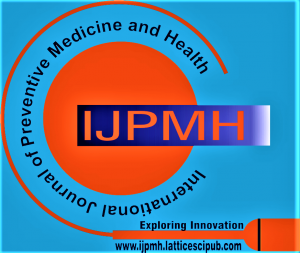![]()
Telematic Intervention based on the Play Specialist Approach in the Covid-19 Era: Benefits for Parents of Children with Clinical Conditions
G. Perasso1, A. Maggiore2, C. Allegri3, G. Camurati4
1Giulia Perasso, Research Consultant, Porto dei Piccoli, Genoa, Italy.
2Alice Maggiore, Psychologist, Porto dei Piccoli, Genoa, Italy.
3Allegri Chiara, Psychologist, Porto dei Piccoli, Genoa, Italy.
4Gloria Camurati, General Manager, Porto dei Piccoli, Genoa, Italy.
Manuscript received on 24 October 2020 | Revised Manuscript received on 02 November 2020 | Manuscript Accepted on 15 November 2020 | Manuscript published on 30 November 2020 | PP: 1-7 | Volume-1 Issue-1, November 2020. | Retrieval Number: A2005111120/2020©LSP | DOI:10.54105/ijpmh.A2005.111120
Open Access | Ethics and Policies | Cite | Mendeley | Indexing and Abstracting
© The Authors. Published by Lattice Science Publication (LSP). This is an open access article under the CC-BY-NC-ND license (http://creativecommons.org/licenses/by-nc-nd/4.0/)
Abstract: Covid-19 pandemic has changed the routines of families all over the world. From March 2020 up to today, Italian families are still struggling for adaptation. Parents of children and adolescents with a clinical diagnosis are more at risk for parental burnout, depression, and anxiety, and they are now experiencing restrictions in many services families relied on. Home-based and hospital-based interventions based on the Play Specialist’s approach have been limited due to anti-covid norms. Internationally, Play Specialist intervention has been empirically demonstrated effective in diminishing children’s negative emotions in relation to medical procedures and in increasing adaptation and compliance towards medical settings. Plus, Play Specialist’s intervention indirect effect on parental wellbeing is still unexplored. In Italy, differently from UK and USA, the Play Specialist intervention is not certified in the health-care system yet. The present study tests the effects on parental psychosocial health of a telematic adaptation of the Play Specialist approach (TPS), conducted in the post-lockdown months in Italy. Two groups of parents (N=33, Mean age=43.36, SD=9.81, Female= 66% receiving the TPS intervention, and N=33 Mean age=41.84, SD=6.15, Female=78% controls) of children in clinical conditions are compared. Parental burnout, anxiety, stress, depression, social support, and parental perception of children’s emotional problems have been measured via self-report questionnaires. Analysis of covariance reveals that the TPS group is less stressed, perceives higher social support, lower parental burnout (i.e., emotional distancing, contrast with other/previous Self, fed-up feeling), lower emotional and behavioural child’s problems than the control group. These findings are addressed at encouraging both research and practice around the Play Specialist’s intervention beyond the hospital-context.
Keywords: Children’s health, Covid-19, Parental Burn-out, Play Specialist.
Scope of the Article: Children’s Health
